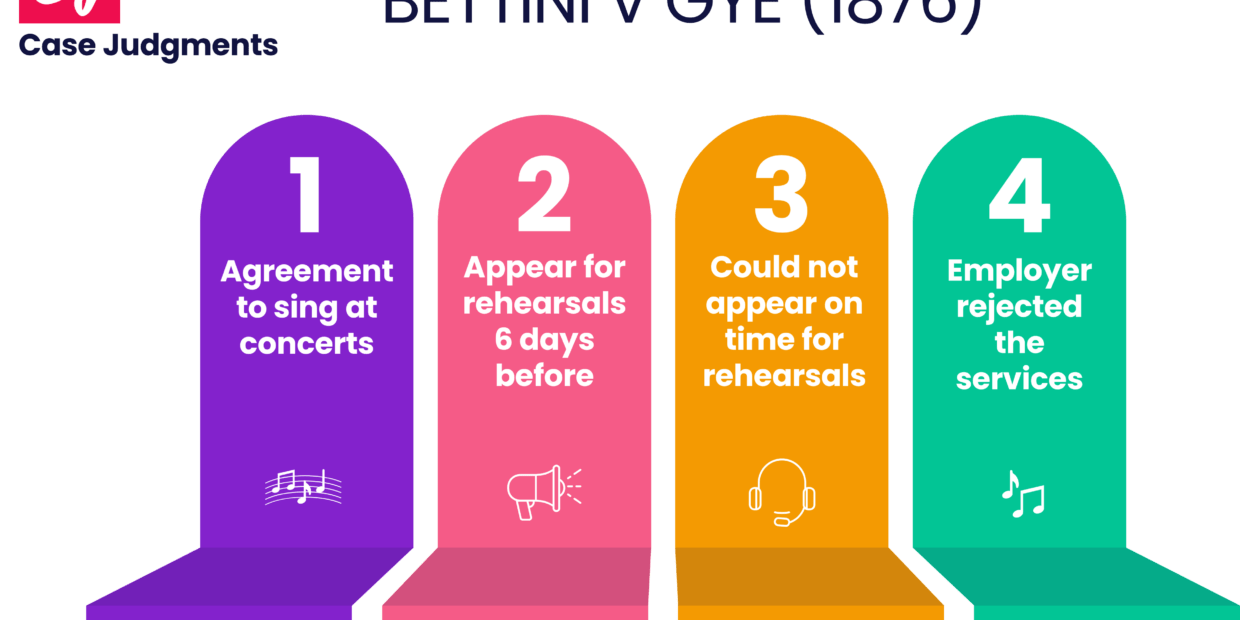Case name & citation: Poussard v Spiers and Pond (1876) 1 QBD 410 What is the case about? This is a famous contract law case…
Case name & citation: Bettini v Gye (1876) 1 QBD 183 What is the case about? In the landmark case of Bettini v Gye (1876),…
Associated Newspapers Ltd v Bancks is a UK contract law case that deals with the test of essentiality. The test is to determine whether a…
The courts use a test of “essentiality” to decide whether a term is to be interpreted as a “condition.” This test was famously explained by…



